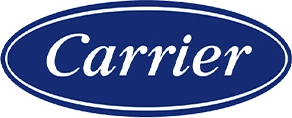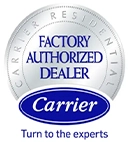The natural heating and cooling cycles of a furnace can lead to cracks in a heat exchanger. A furnace that is being overworked or stressed is more likely to have a premature breakdown and potential carbon monoxide leak. Dirty air filters, blocked vents, and burners that are not firing properly and disrupting the combustion process can all contribute to the detrimental stress that may lead to cracks in a heat exchanger.
If a crack in the heat exchanger allows carbon monoxide to escape into your home you may experience dizziness, light-headedness, flu-like symptoms, or even death by asphyxiation. Carbon monoxide limits the body's ability to take in oxygen. This is an extremely dangerous situation to have in the home, because the effects of carbon monoxide poisoning may be gradual and undetected.
Very concerned. Carbon monoxide (CO) is a gas produced during the combustion of fuels. It's colorless, odorless, tasteless...and can be lethal. Even trace amounts can impair your brain function and impact your health. Cracks, leaks, obstructions and other malfunctions in your heating system can cause carbon monoxide to develop and accumulate. Short-term exposure to carbon monoxide usually results in flu-like symptoms: nausea, headaches, dizziness, fatigue. Long-term exposure can eventually lead to unconsciousness or death. Dutch Enterprises recommends the following to minimize carbon monoxide risk: Keep heating equipment in good repair by scheduling regular inspection and maintenance. Keep furnaces, chimneys and vents free of obstruction. Watch out for birds, squirrels and other animals who sometimes build nests in these areas. Install a carbon monoxide detector, available at any home supply store. Periodically open windows in winter to let in fresh oxygen-rich air inside and let out any potential carbon monoxide. If you use an older gas stove or heater, look at the color of the pilot light. The flame should be at least 80 percent blue. If the flame is mostly yellow, it could be producing carbon monoxide, so have the unit checked by a professional immediately. Be sure to tune up your gas system at least once a year. Today's modern heating systems burn cleaner than older systems, minimizing or eliminating your risk of carbon monoxide exposure. Contact Dutch Enterprises for more information.











